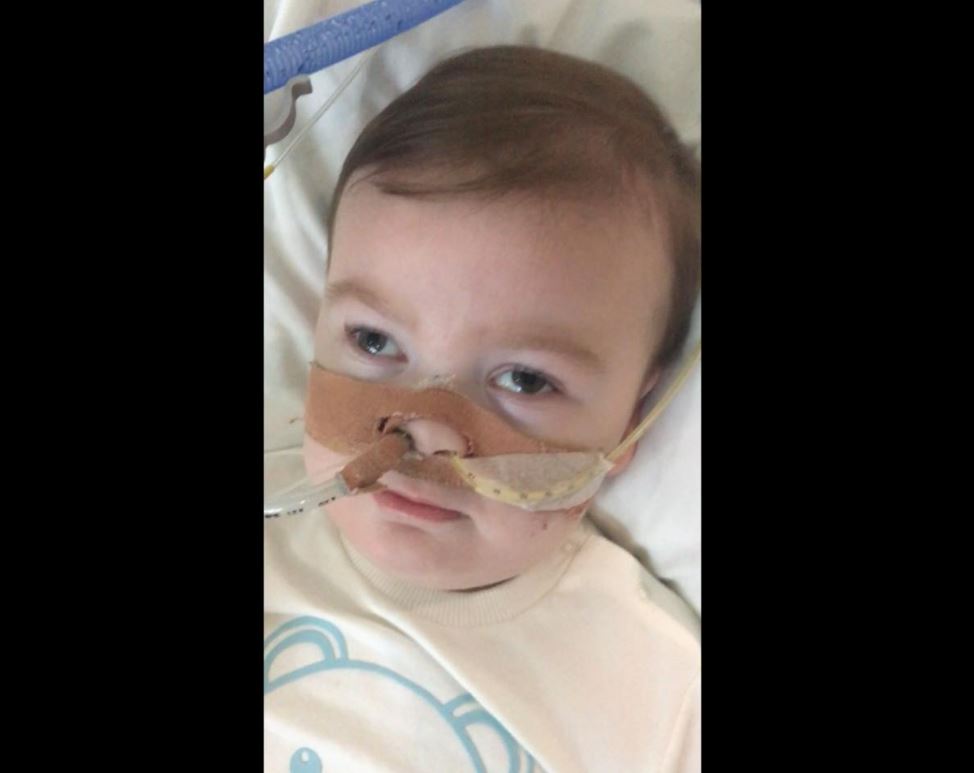As the case of Alfie Evans reaches a crunch point in the U.K.’s highest court, still very little is known about his specific condition. All we know is that he has been suffering from an “undiagnosed degenerative neurological illness.” Other comments made by appeal court judges that suggest most of Alfie’s brain matter has wasted away, leaving just water and spinal fluid and rendering him without any cognitive function.
The courts have continued to block Alfie’s parents from transferring their son to a different treatment facility, citing concerns over his welfare, and ruling that this would “not be in his best interests.” Alfie is in a fragile state, and requires a ventilator to keep him alive.
So what else can we know about Alfie’s medical state, and how might this affect the final ruling we are to expect from the supreme court?
“Alfie has a condition that falls into the group of conditions called neurodegenerative conditions – some of these have names and some have not got specific names,” consultant pediatrician Dr. Ravi Jayaram told BBC Radio 5 Live. “This is an important point because one of the arguments being put forward is that there isn’t a diagnosis, there isn’t a name to this neurodegenerative condition.”
Despite the relatively unknown nature of such a condition, Jayaram says the outlook is grave.
“People know what it is and we know that the outlook is grim,” he noted. “The brain gradually effectively just dies away.”
So why, in his opinion, are the courts refusing to allow Alfie’s parents to remove their son from Alder Hey Children’s hospital? Isn’t this their right?
“The issue is that in U.K. law, doctors, nurses, health professionals have to act in the best interests of the child, not the parents, not themselves, not anybody else,” Jayaram explained. “And the difficulty here is if the chance of any long-term improvement is virtually nil then by actually putting Alfie at potential risk, because there are huge risks in transporting a critically ill babies. It’s a question of dignity. It puts him at higher risk of dying.”
With that said, Ravi said he can empathize with parents who are simply fighting for the life of their child.
“I can understand, as a parent myself, you want to cling on to any straw floating by in the sea to stop you from drowning,” he explained.
The U.K. Supreme Court is currently considering the latest legal appeal made by the Christian Legal Centre, which is representing Alfie’s parents.
On Tuesday, the Supreme Court confirmed it had received Alfie’s case, issuing a statement on the matter:
“The parents of Alfie Evans filed their application to appeal to the Supreme Court of the United Kingdom earlier this afternoon. They wish to challenge the decision that Alder Hey Children’s NHS Foundation Trust can withdraw artificial ventilation from their child. The application will be referred to the President of the Supreme Court, Lady Hale, and two other members of the Court who will form the decision panel.
The hospital and Alfie’s legal guardian (the person who provides the independent voice of the child in court) will then be asked to provide their views.
The Court is aware of the urgency of this matter.
We will provide updates as further information becomes available.”
On the day the legal paperwork was filed with the supreme court, Roger Kiska of Christian Legal Centre, explained to Faithwire that Alfie’s parents should not be prevented from moving their son to another treatment facility.
“Kate and Tom, Alfie’s parents, do not accept that it is in his best interests to have his life ended by a judge’s ruling; they should be free to take him to a hospital that is ready and willing to treat him,” Roger said Tuesday. “Alfie should also be able to access the treatment being offered abroad.”
Mr. Kiska added: “We ask for your readers to pray for sustained strength for Tom and Kate, as well as Alfie, who has shown the same tenacity and fighting spirit his parents have exhibited throughout this ordeal.”
(H/T: The Chester Chronicle)



